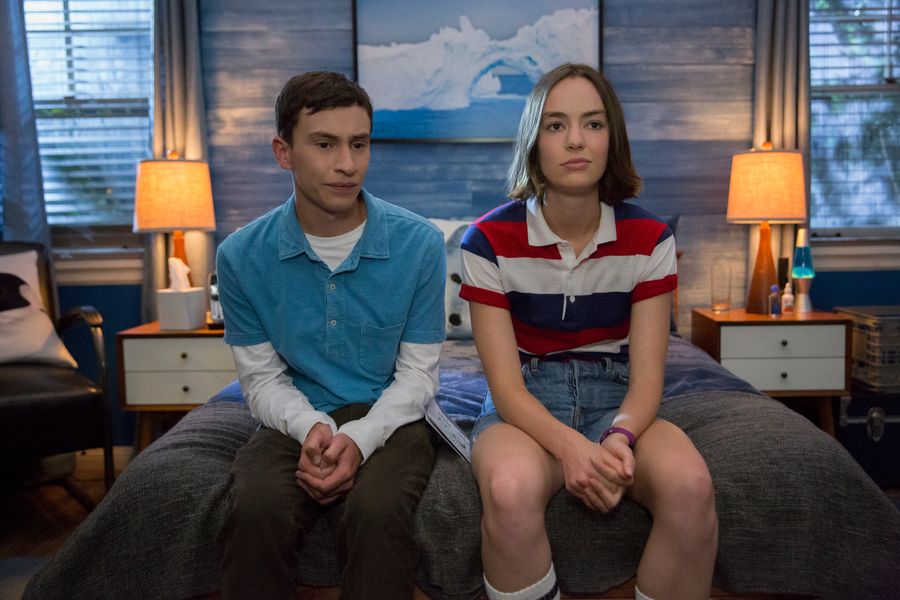The wait is over. The fourth and final series of one of Netflix’s most successful original comedy series, Atypical, drops today to the delight of fans worldwide.
Though the final season of the show will see its fair share of goodbyes, season four is also full of new beginnings, as protagonist Sam (Keir Gilchrist), moves into a new apartment with his best friend Zahid (Nik Dodani). This brings up natural challenges for Sam’s overprotective mum Elsa (Jennifer Jason Leigh) whilst Sam tackles the prospect of life post-college.
Announcing in February 2020 that Atypical would end after its fourth season, gave showrunner and creator Robia Rashid plenty of time to properly plan out a farewell for Sam, Elsa, Zahid, Casey (Brigette Lundy-Paine). “I did feel like we got to a good place with everybody,” Rashid stated in a recent interview, elaborating in saying, “I felt like everybody’s ending was satisfying”.
For Rashid, this means planning out a proper, considerable goodbye for Atypical’s lead character, Sam and getting him “to a place where he realizes that he’s not just scraping by,” as the showrunner states. “[He’s] coming from this place of fear and what we get to is this idea of going from a scarcity mentality to a plenty mentality. There are opportunities out there, and there is lots of love out there, and it’s OK to take big risks,” she said of the fate of Sam in the show’s final season.
Noting that she was “so sad to be nearing the end of this series,” Rashid remains grateful for being able to tell her story. “Our fans have been such beautiful, vibrant supporters of this show,” she reported, “thank you for being so open to Sam’s voice and stories, and those of the entire Gardner family. It’s my hope that the legacy of Atypical is that more unheard voices continue to be heard and that even after this series ends, we keep telling funny, emotional stories from underrepresented points of view.”
